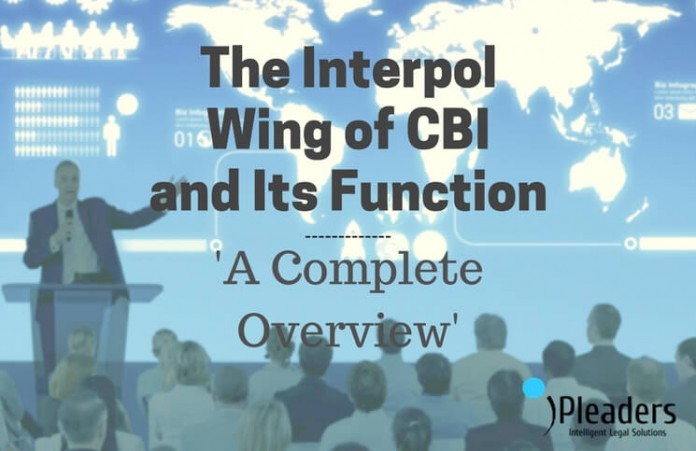Interpol refers to the only official police organization whose main aim is to ensure Police cooperation across international borders. Their main aim is to ensure the sanctity and continuance of day-to-day police cooperation across borders. It is the telegraphic address of the International Criminal Police Organization.
Origin Of Interpol
The origin of Interpol can be traced back to the month of April in 1914 when the first International Police Congress was held in Monaco.This congress saw police officers as well as legal experts from as many as 14 countries coming together and studying the possibility of establishing an international office for holding criminal records and to harmonize the process of extradition across countries.
However, before any progress could be made, the outbreak of the First World War shut down the project. A second conference for the same was held in Vienna in 1923 which led to the formation of the International Criminal Police Commission.
However, this also got deactivated due to the onset of the Second World War.
After this, a Conference was held in Brussels to re-active the ICPC and the whole concept of International Police Cooperation was revived- thereby leading to the formation of the Interpol.
Interpol And Its International Connectivity
At present, Interpol has a membership of over 182 countries. Each of these countries has a National Crime Bureau responsible for exchanging information and data- both within and outside- with other countries.
These bureaus are also responsible for coordinating the functioning of the matters within the country- and with other countries- including with the INTERPOL Headquarters.
The Interpol Secretariat General (IPSG), is a permanent body of the Organization with its Headquarters located at Lyon, France. It is responsible for processing all the information and for handling International Police Cooperation in criminal matters.
It has sufficient means to enable it- to respond immediately to NCBs- making requests for Police cooperation.
National Central Bureau In India
The National Central Bureau in New Delhi is the sole authorized agency in India for contacts with the police agencies of the other countries. The NCB acts as a branch of the Central Bureau of Investigation and is under the control of a Deputy Director- who must be an officer of the rank of DIG at least- and two assistant directors- who must be police officers of the rank of Superintendent of Police.
This wing of the CBI deals with various investigative matters- like extradition, preliminary enquiry of cases where the suspects moved abroad, issuance of Interpol matters, verification of details- like passports, driving licenses, war on drugs and so on.
The NCB has been divided into various different departments or “desks”- to ensure that the duties accorded to it are discharged in a very effective and efficient manner.
These duties and functions include a plethora of different activities. Some of them are as follows:
- Conducting Investigations abroad,
- Conducting Domestic Investigations,
- Issuing Red Corner Notices,
- Clarifying General Enquiries,
- Extradition,
- Checking Currency fraud and counterfeiting,
- Checking Drugs and Narcotics,
- Holding and attending Conferences,
- Protocol,
- Participating in Treaty negotiations and
- Sorting out International legal issues.
Furthermore, to smooth the working of the organisation even more, it is to be ensured that All the States/UT Police Forces and Commissioners of Police have designated Interpol Liaison Offices that are in direct communication with Interpol Wing (CBI) through CBI Command Centre.
This helps by ensuring that the exchange of information is more speedy and expeditious.
Co-ordination Wing In Interpol
The non investigative part of the Interpol wing in the CBI is termed as the Co-ordination wing. The main aim of this unit of the CBI mainly revolves around administrative and coordination matters.
Some of its functions include-
- Establishment,
- Accounts and accommodation work- relating to interpol activities.
It also plays a part in the coordination of the CBI with other countries. It’s primary duty, however, is to liaise and coordinate with Branches of CBI and other Departments/ Ministries, Law Enforcement Agencies, State/UT Police Forces and foreign Police/Missions and organizations as and when required.
Just like the investigative wing, the co-ordination wing too is under the control of a Deputy Director- who must be an officer of the rank of DIG at least and an assistant director who must be a police officer of the rank of Superintendent of Police.
The coordination and cooperation wing has to work in accordance with the following principles:
- Respect for national sovereignty: Cooperation is based in the actions taken by the Police forces in the various Member-States. They operate and co-operate within their own national boundaries in accordance with their own national laws.
- Enforcement of ordinary criminal law: The Organization’s field of activities is limited to crime prevention and law enforcement in connection with ordinary criminal offences. This is the only basis on which there can be agreement between all Member- States.
- Universality: Any Member- State may co-operate with any other and co-operation must not be impeded by geographical or linguistic factors.
- Equality of all Member-States: All the Member-States are provided with the same services and have the same rights, irrespective of the size of their financial contributions to the Organization.
- Cooperation with other agencies: Cooperation is extended through the National Central Bureaus to any Government agency concerned with combating ordinary criminal offences.
- Flexibility of working methods: Although governed by principles designed to ensure regularity and continuity, working methods are flexible enough to take account of the wide variety of structures and situations in different countries.
These principles ensure that there is no team of detectives affiliated to the Interpol that can exercise super-national powers.
This means that they can travel around anywhere investigating any case they want in any country. International police cooperation depends solely upon the coordinated action on part of the Member-states’ police forces and this should remain the case.
One of the main functions carried out by the coordination wing of the Interpol is issuing Look Out Circulars or LOCs.
LOCs are issued to trace absconding criminals and also to notify all the authorities to monitor exit and entry of any persons who might be wanted by various law enforcement authorities.
Process Of Issuing LOCs In Co-Ordination Wing Of Interpol
The process for issuing an LOC begins with sending a request to do so to all the immigration check posts in the country. For this, the official format provided by the MHA should be followed. Such a request should be approved by an officer, not below the rank of Deputy Secretary to the Government of India or of the Joint Secretary in the state Government. Furthermore, it must be ensured that complete and detailed information is provided in the LOC.
An LOC once issued is valid for a period of one year. However, in case the originating agency wants to extend the validity beyond one year it can ask for the extension before the expiry of the one year period.
If no request is made for the extension of the LOC within the stipulated period of one year, the Immigration Officer concerned is authorized to suspend the LOC. Apart from this, the CBI also has something known as the Fugitive Investigation Support Unit, which has been established as a part of the coordination wing to facilitate and provide investigative support in Proclaimed Offenders, absconders and Fugitives wanted by the CBI, Interpol and other Law Enforcement Agencies
Another Function of the Coordination wing entails hosting a biennial joint conference between the CBI officials, the heads of State Anti Corruption Bureau and the CVOs.
This is a conference of much importance and a lot of prestige and is hosted once every two years. The coordination wing is also in charge of publishing a monthly journal called the CBI Bulletin. The said journal is circulated all across India.
This’s all about Interpol Wing And Its Functions for now. Did you find this post useful? Let us know in the comments section below. Don’t forget to Share!
 Serato DJ Crack 2025Serato DJ PRO Crack
Serato DJ Crack 2025Serato DJ PRO Crack










 Allow notifications
Allow notifications


